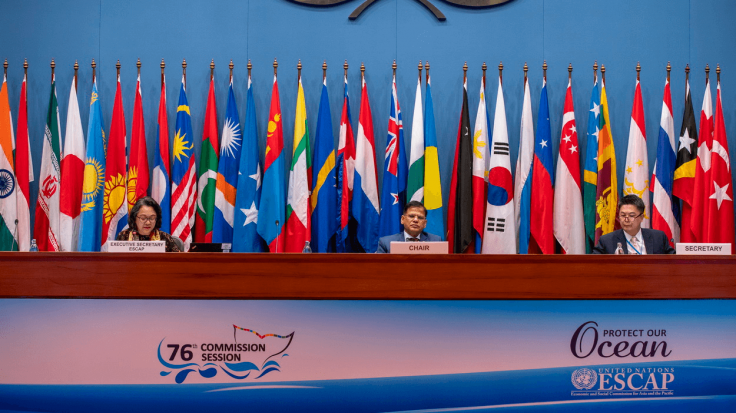The 7th Asia-Pacific Forum on Sustainable Development (APFSD) concluded Wednesday with a resounding call for countries to revive international cooperation and multi-stakeholder partnerships in tackling the huge socio-economic impacts of the COVID-19 pandemic, which threaten to reverse hard-won development gains in the region.
More than 730 delegates representing governments, civil society, businesses and international organizations at the Forum hosted virtually by the United Nations Economic and Social Commission for Asia and the Pacific (ESCAP) also expressed concerns on the limited progress made towards achieving the Sustainable Development Goals (SDGs) and underscored the need for transformative accelerated action by all stakeholders to meet the targets by 2030.
High Toll of Covid-19
COVID-19 is already raking high tolls on the region. Most economies experienced contractions during the first four months of 2020 and millions of people are projected to fall into extreme poverty this year. The disruption to food systems and reduced access to healthcare and education systems will also have profound effects on the most vulnerable communities and people in the region.

"We have reached a point of great risks and opportunities for this world. If we are to tackle the fragilities this crisis has exposed, then our recovery must break with the past. It must pursue equality, inclusion, sustainability and transformation. It must bring the fundamental calling of the 2030 Agenda for Sustainable Development to life," said United Nations Deputy Secretary-General Amina J. Mohammed in her opening remarks.
ESCAP Chief: Turn Covid-10 into Opportunity
United Nations Under-Secretary-General and Executive Secretary of ESCAP Ms. Armida Salsiah Alisjahbana urged countries to turn challenges arising from the global health crisis into opportunities by leveraging innovation to advance technology-based solutions. "Protecting people's well-being must be at the core of policy responses. By ensuring a readiness on the part of institutions, policymaking must be able to manage trade-offs and complexity in responding to future crises to safeguard sustainable development gains," added Ms. Alisjahbana.

Delegates at the APFSD this year reviewed six key transformative entry points to accelerate progress towards the SDGs. They are: 1) human well-being and capabilities; 2) sustainable and just economies; 3) food systems and nutrition patterns; 4) enhancing power grid connectivity to achieve affordable and clean energy for all; 5) urban and peri-urban development; and 6) global environmental commons.
On the sidelines, ESCAP, the Asian Development Bank (ADB) and United Nations Development Programme (UNDP) jointly launched the latest edition of the Asia-Pacific SDG Partnership Report - Fast-Tracking the Sustainable Development Goals: Driving Asia-Pacific Transformations. The report highlights strategies to accelerate transformation and helps countries compare their speed of progress with others. It calls for clear direction, removing systemic barriers, investing in institutional and public readiness to change, and upgrading policymaking approaches to manage increasingly complex development challenges.
One of the report's key findings is that higher income is not a silver bullet to address the challenges posed by SDGs and achieve accelerated progress along transformative pathways. Low-income and lower middle-income countries emerged as some of the fastest-moving countries in the region.
Since 2014, the APFSD has provided a unique annual platform for countries in Asia and the Pacific to share perspectives, challenges and best practices as they progress toward implementing the SDGs. Outcomes from APFSD will provide input into the global discussions held at the HLPF in July this year.








